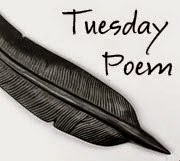Point of information: What do you know about anything?
I’ll give you extra time to figure it out.
No, I’m not going to cry.
I’m going to smash the geraniums.
Do you mind, darling?
I like it when you shake your fist at a painted portrait.
May I ask why you’re so terrible?
I love you but you want to go to blazes.
Have you ever even tasted my tears?
The empty champagne glasses were waiting beautifully.
Don’t look at me with that sparkle.
I don’t like it.
Everyone shouldn’t ruin everything.
I never win an argument, but there are other things in life.
Does anybody ever get that look out of their eyes?
I’ve had the right attitude once or twice.
I nearly went out of my mind.
What are you? A perfect rat?
I adore rats. Rats are sweet.
Now, let’s have some yelling.
Darling, this is a cylindrical satin sofa cushion.
I’m going to beat you with it.
Now, a lot of people don’t know what I’m talking about.
That’s what’s so wonderful.
I’m afraid I’m going to have to accept that free ticket out of town.
Bulletin: You’re no good.
I don’t care who catches it.
It’s a swell night for a cry.
That’s KO with me.
Let’s have ringside seats.
Bulletin: You’re still no good.
I think you’re the most no-good person I’ve ever known.
And that concludes tonight’s sermon.
I know what you’re thinking.
Maybe we’d get somewhere.
I’ll give you extra time to figure it out.
No, I’m not going to cry.
I’m going to smash the geraniums.
Do you mind, darling?
I like it when you shake your fist at a painted portrait.
May I ask why you’re so terrible?
I love you but you want to go to blazes.
Have you ever even tasted my tears?
The empty champagne glasses were waiting beautifully.
Don’t look at me with that sparkle.
I don’t like it.
Everyone shouldn’t ruin everything.
I never win an argument, but there are other things in life.
Does anybody ever get that look out of their eyes?
I’ve had the right attitude once or twice.
I nearly went out of my mind.
What are you? A perfect rat?
I adore rats. Rats are sweet.
Now, let’s have some yelling.
Darling, this is a cylindrical satin sofa cushion.
I’m going to beat you with it.
Now, a lot of people don’t know what I’m talking about.
That’s what’s so wonderful.
I’m afraid I’m going to have to accept that free ticket out of town.
Bulletin: You’re no good.
I don’t care who catches it.
It’s a swell night for a cry.
That’s KO with me.
Let’s have ringside seats.
Bulletin: You’re still no good.
I think you’re the most no-good person I’ve ever known.
And that concludes tonight’s sermon.
I know what you’re thinking.
Maybe we’d get somewhere.
by Chelsey Minnis
For more information about the poet, Chelsey Minnis, see:











